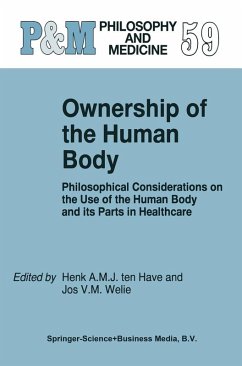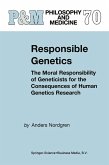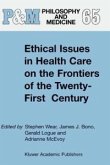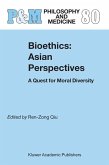This is the first book in healthcare ethics addressing the moral issues regarding ownership of the human body. Modern medicine increasingly transforms the body and makes use of body parts for diagnostic, therapeutic and preventive purposes. The book analyzes the concept of body ownership. It also reviews the ownership issues arising in clinical care (for example, donation policies, autopsy) and biomedical research. Societies and legal systems also have to deal with issues of body ownership. A comparison is made between specific legal arrangements in The Netherlands and France, as examples of legal approaches. In the final section of the book, different theoretical perspectives on the human body are analyzed: libertarian, personalist, deontological and utilitarian theories of body ownership.
Dieser Download kann aus rechtlichen Gründen nur mit Rechnungsadresse in A, B, BG, CY, CZ, D, DK, EW, E, FIN, F, GR, HR, H, IRL, I, LT, L, LR, M, NL, PL, P, R, S, SLO, SK ausgeliefert werden.









